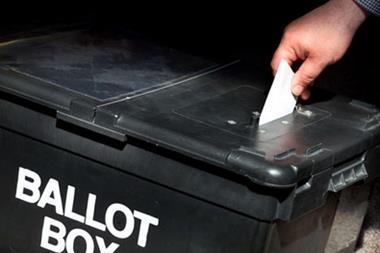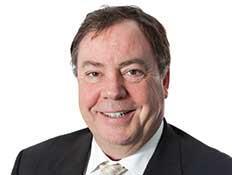This was the last party conference season before the general election. From now until 7 May next year, don’t expect much legislation.
This was the last party conference season before the general election. From now until 7 May next year, don’t expect much legislation.
It will be all claim and counterclaim, promise and counterpromise in the run up to polling day. By common consent the Labour conference was a poor show. Ed Miliband was roundly condemned for ‘forgetting’ to mention the deficit or immigration in his supposedly unscripted speech. The irony is nobody would have noticed if his staff hadn’t circulated the printed version, thus adding to the general sense of a party which couldn’t run a whelk stall and underlining Miliband’s perceived unsuitability for high office. The mood among delegates was resigned and sombre, which was extraordinary for a party that had looked — indeed on some analyses still does — like walking into Downing Street next year, if only by default.
The Tories, by contrast, appeared to shrug off the double whammy of a defecting MP and the unfortunate contents of a pair of paisley pyjamas and were in great spirits in Birmingham. Their top team were on good form and Cameron himself gave one of the best speeches of his career. The general mood was utter disbelief that anybody would vote for a far left poorly-led Labour party which had caused the country’s economic problems in the first place.
It is always important to remember it is the parties’ activists who attend conferences. Ordinary mortals wisely don’t bother. But the subsequent bounce in the polls on the back of Cameron’s pledge to raise the 40% tax band which hits the squeezed middle hard has put the party in the lead for the first time for several years.
The least said about the Lib Dems, the better. They evidently hate a far left Labour party almost — but not quite as much — as they loathe their coalition partners. The trouble is, they are no longer the nation’s alternative choice. That mantle now rests on Nigel Farage’s shoulders. He and his UKIP colleagues are on a roll polling almost three times better than the Lib Dems and their influence on the next election will be significant. They play particularly on the widespread sense that none of the three party leaders is in touch with the concerns of ordinary voters.
This lack of enthusiasm for the major parties has changed the shape of UK politics dramatically in recent years. In 1945, 90% of voters voted for one of the two main parties. Now, neither of them is likely to get more than the high 30s — short of the magic 40% with which a party could normally form a majority government. The current coalition was not what any voters wanted. It arose precisely because a third of electors voted for minority parties and that pattern looks set to continue.
The question of course is who will lead the next coalition. Current predictions are that the Conservatives will be the largest single party, with Labour not far behind. The Scottish National Party are likely to take around 20 seats from Labour but would almost certainly join a Labour coalition if promised enough. The Lib Dems look as though they will do badly and could be down to 20 seats, but which side the survivors would join is still an open question. UKIP may well win in Clacton with Douglas Carswell and Thanet South with Nigel Farage. Elsewhere, recent Tory defector Mark Reckless is seen as being possible to beat in his upcoming by-election and electoral arithmetic means the party are unlikely to add to their tally elsewhere. But even a couple of percent swing to UKIP in Tory marginals could hand the seat to Labour. The truth is at this stage it is still anyone’s game.
The challenge for Labour is to make themselves a credible party of government. For the Tories, it is about pointing out again and again that, as David Cameron so eloquently put it, voters may go to bed with Nigel Farage on polling night and wake up with Ed Miliband.
My instinct is that this election is looking very much like 1992 when after 13 years in government nobody loved the Tories, who only two years earlier had defenestrated Margaret Thatcher. Labour had led for most of those years, but in the weeks running up to polling day the government gained a slender lead. With all to play for the turnout was high. And just as in Scotland where the silent ‘don’t knows’ came out strongly for the safer option, so in 1992 voters looked at Neil Kinnock and John Smith and said ‘this lot may not be wonderful but you’re not the answer’. They went for the safe option. The result is history. And I have a sneaking suspicion that history might be about to repeat itself.
Steven Norris is a former Conservative minister and London mayoral candidate. He is chairman of the National Planning and Infrastructure Association, and of Soho Estates.





























No comments yet